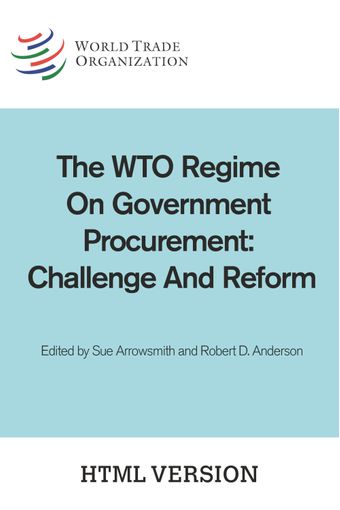Social policies in procurement and the Agreement on Government Procurement: A perspective from South Africa

- Authors: Phoebe Bolton and Geo Quinot
- Source: The WTO Regime on Government Procurement , pp 18-18
- Publication Date: January 2011
- DOI: https://doi.org/10.30875/a81365fd-en
- Language: English
Public procurement is extensively used in South Africa as a tool to achieve horizontal policies – that is, policies that are not necessarily directly connected with the functional purposes of the goods, works or services acquired in the procurement. The most pervasive of these policies are the social-policy-underlying mechanisms to redress inequalities in the South African economy created by colonization and apartheid. This policy of economic redress in favour of previously disadvantaged groups, generally known as black economic empowerment (‘BEE’), forms part of the larger project of constitutional transformation in South Africa, which informs the entire government agenda. In public procurement specifically, the primacy of this policy is reflected in the constitutional mandate for BEE mechanisms in procurement. The policy of BEE is so pervasive that it has also found its way into private procurement in South Africa through the Broad-Based Black Economic Empowerment Act (‘BBBEEA’). The South African system thus provides an interesting example to test the ‘fit’ of the WTO’s Agreement on Government Procurement (GPA) in a context where social policy plays a major role in shaping procurement practices.
-
From This Site
/content/books/9789287046765s013-c005dcterms_subject,pub_countryId-contentType:WorkingPaperSeries -contentType:Periodical -contentType:BookSeries -contentType:ReportSeries105


